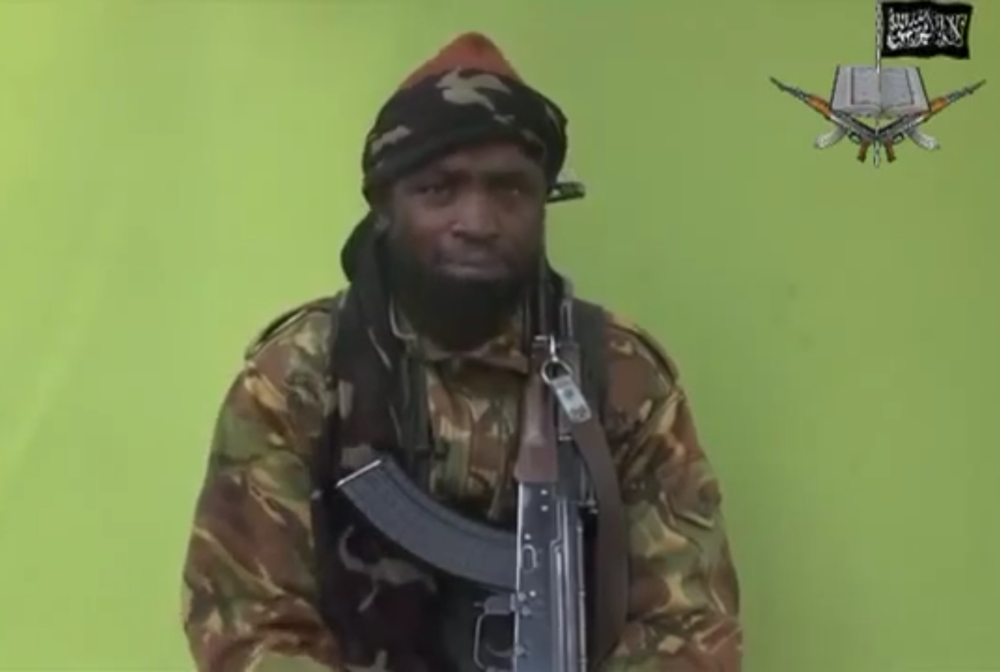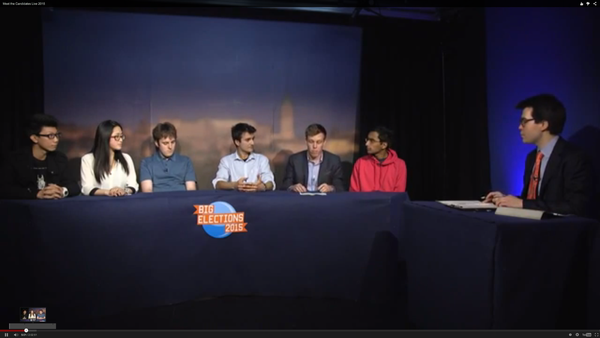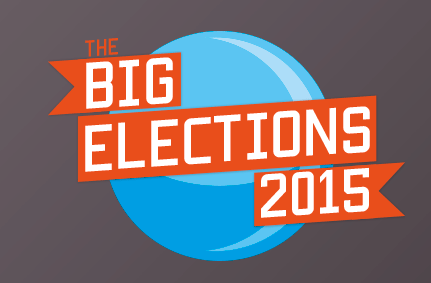Boko Haram leader pledges allegiance to Islamic State
Joshua Renken reports on the developments in the jihadist campaign

A video of Abubakar Shekau, the leader of the militant extremist group Boko Haram, has emerged in which he swears allegiance to Islamic State (IS).
The message said: “We announce our allegiance to the Caliph of the Muslims and will hear and obey in times of difficulty and prosperity, in hardship and ease, and to endure being discriminated against, and not to dispute about rule with those in power, except in case of evident infidelity regarding that which there is a proof from Allah”.
The Boko Haram leader purportedly goes on to say “We call on Muslims everywhere to pledge allegiance to the caliph”.
The Arabic audio message, which has not yet been verified, was posted on Boko Haram’s Twitter account on Saturday 7th March. Boko Haram previously expressed support for the Islamic State in 2014 and, if verified, this pledge by the Nigeria based extremist group would be the latest in a series of allegiances sworn to IS by radical military organisations.
After its founding in 2002, Boko Haram’s increasing radicalisation led to a violent uprising in July 2009 in which its founder and then leader, Mohammed Yusuf, was executed.
The group’s subsequent six-year military campaign after the uprising of 2009 has been so extreme that al-Qaida’s leader, Ayman al-Zawahiri, has renounced Boko Haram’s actions.
Since Abubakar Shekau’s appointment as leader the group has killed over 5,000 civilians and more than 1.5 million people have been displaced as they fled from the conflict zone.
Boko Haram gained widespread media attention in April of last year after the kidnapping of 276 Nigerian schoolgirls from the northeasterly region of Chibok.
Many of the mainly Christian students who were abducted in April have been forced to convert to Islam and marry members of Boko Haram, reportedly being sold for a “bride price” of just 2,000 Nigerian naira (less than £7.00).
In May 2014, Abubakar Shekau took responsibility for the abductions, claiming that “Allah instructed me to sell them,” and saying “I will carry out his instructions”. He has said the girls should not have been in school and instead should have been married.
The announcement of Boko Haram’s pledge of allegiance to Islamic State was posted online shortly after female suicide bombers killed at least 50 people in the northeastern Nigerian city of Maiduguri, which is in the Borno state where Boko Haram originated.
Boko Haram advocates for a strict form of sharia law to be imposed in their claimed territory and is prepared to kill anyone who does not conform to their ultraconservative fundamentalist form of Sunni Islam, known as Wahhabism.
The group brutally enforces conservative Islamic traditions and the caliphs (leaders) involved are seen by the membership as political successors to the prophet Mohammad. The name “boko haram” is often translated as “Western education is forbidden”.
The group, which is believed to be 10,000 strong, is currently operating in Nigeria, Cameroon, Niger and Chad. Together with Islamic State, Boko Haram intends to take over as much land as possible in order to spread their ideology.
The group have produced countless propaganda videos and are well funded through various sources, reported to include kidnappings, robberies, extortion, drug trafficking, smuggling, poaching and donations from Islamist sympathisers, including other jihadist movements.
Boko Haram are an organised and ambitious group who have committed truly unthinkable acts against humanity and pose an even greater threat to millions of civilians after their pledge of allegiance to IS.
The jihadist campaign is now being fought across two continents, and officials in Washington have called Islamic State “probably the best-funded terrorist organisation” the US has ever confronted.
The group is believed to be bankrolled to the tune of around one million dollars a day through wealthy private donors in the Middle East and the sale of oil from fields in Syria and Iraq.
What is the Islamic State?
Formerly known as The Islamic State of Iraq and Syria (ISIS), or The Islamic State of Iraq and the Levant (ISIL), Islamic State (IS) is the name given to the fundamentalist rebel terrorist group that controls territory in north-western Iraq and northern Syria, along with operations in several other countries in North Africa and the Middle East.
Until recently, Islamic State went by the name of ISIS, which many Western leaders (including David Cameron and Barack Obama) would refer to as ISIL. ‘The Levant’ is an undefined region around the Middle East, which was a preferred term since Western governments were very reluctant to declare a war in Syria.
In June of 2014 the radicalised militant group announced that they were going to drop the last two letters of their acronym and call themselves Islamic State.
Despite Islamic State not being what the majority of Muslims believe to be ‘Islamic’, nor a state, this rebrand made it clear that the organisation sees itself as a worldwide caliphate, not just a regional one.
Islamic State now recruits from around the globe, including the United Kingdom. One particularly harrowing example is the radicalisation of University of Westminster computer science graduate Mohammed Emwazi, who was recently unmasked in reports as the British ISIS militant who appeared in videos showing the beheading of journalists and aid workers in Syria.
Emwazi, who is sometimes referred to as ‘Jihadi John’, had been known to MI5 and was on the Home Office Warnings Index, which prevented him leaving the country. He is believed to have escaped from Britain in early 2013 by hiding in a freight lorry on a Channel ferry, before travelling on to Turkey and then Syria.
In the last few days Emwazi has apologised for the problems he has caused his family, but not for the execution of several ISIS captives including British aid workers David Haines and Alan Henning.
The apology, which was sent via a third party from Syria to his family, expressed remorse for the “problems and trouble the revelation of his identity has caused”. Emwazi’s family has been forced into hiding ever since his identification.








